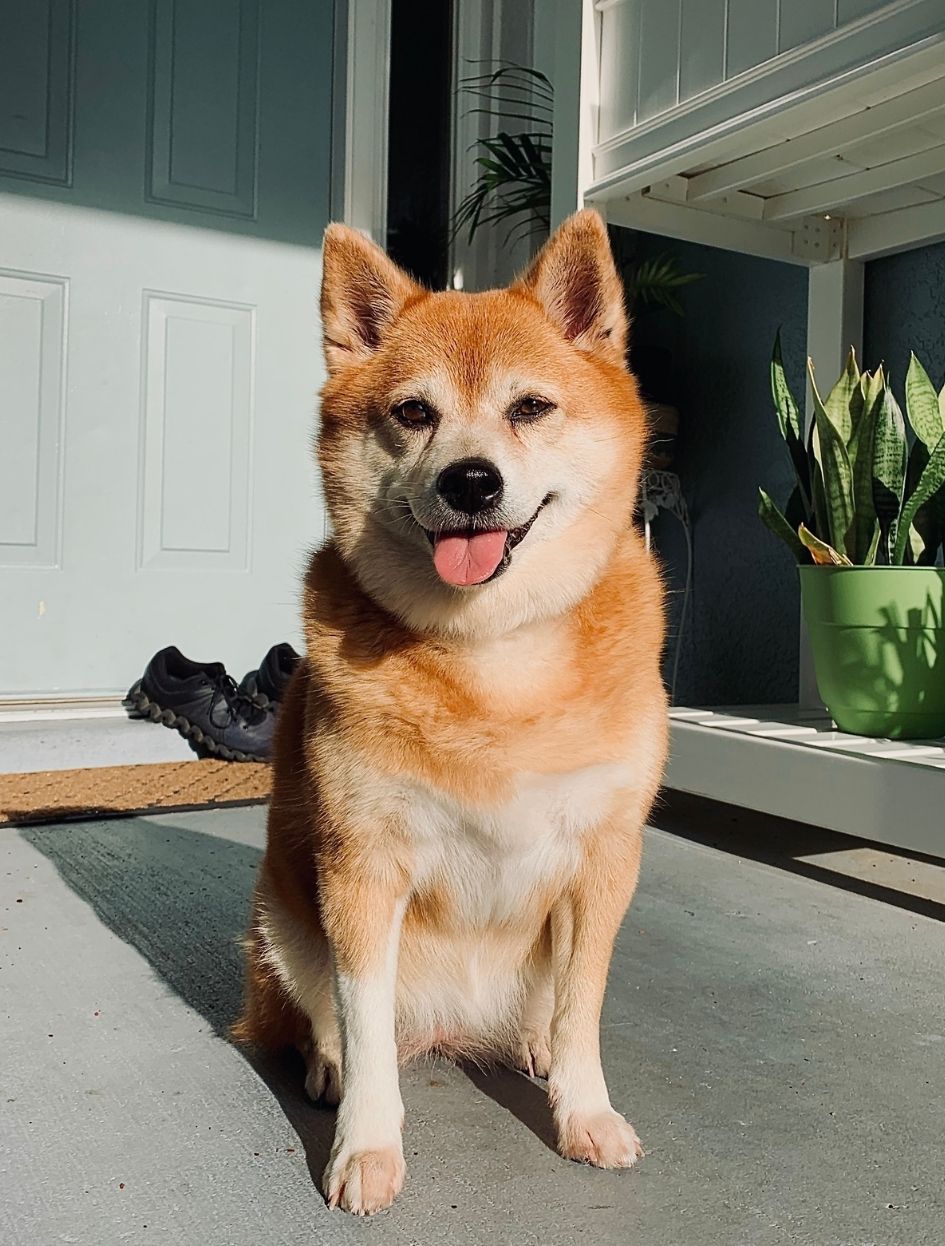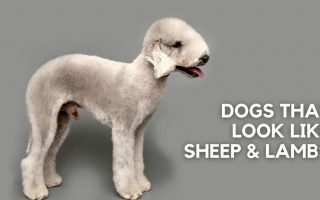If you’re considering getting an Australian Cattle Dog, aka Blue Heeler, as your pet, you’ve probably done some research and asked around to see what kind of dogs they are.
You’ve learned that they can make awesome family pets and loyal friends, that they’re smart, energetic, and require a lot of exercises.
However, a lot of people when looking for a dog don’t consider one very important factor that can greatly influence how much you enjoy owning a dog.
Excessive barking is a serious behavioral problem that can lead to a lot of trouble.
It can irritate the people around you, annoy the neighbors, and, in some cases, even lead to a lawsuit.
Below you’ll learn an answer to the question do Australian Cattle Dogs Bark (Blue Heelers) bark a lot.
I’ll also explain why they bark, and what to do when barking becomes a problem.
[wpsm_toplist]
Do Australian Cattle Dogs (Blue Heelers) Bark a Lot?
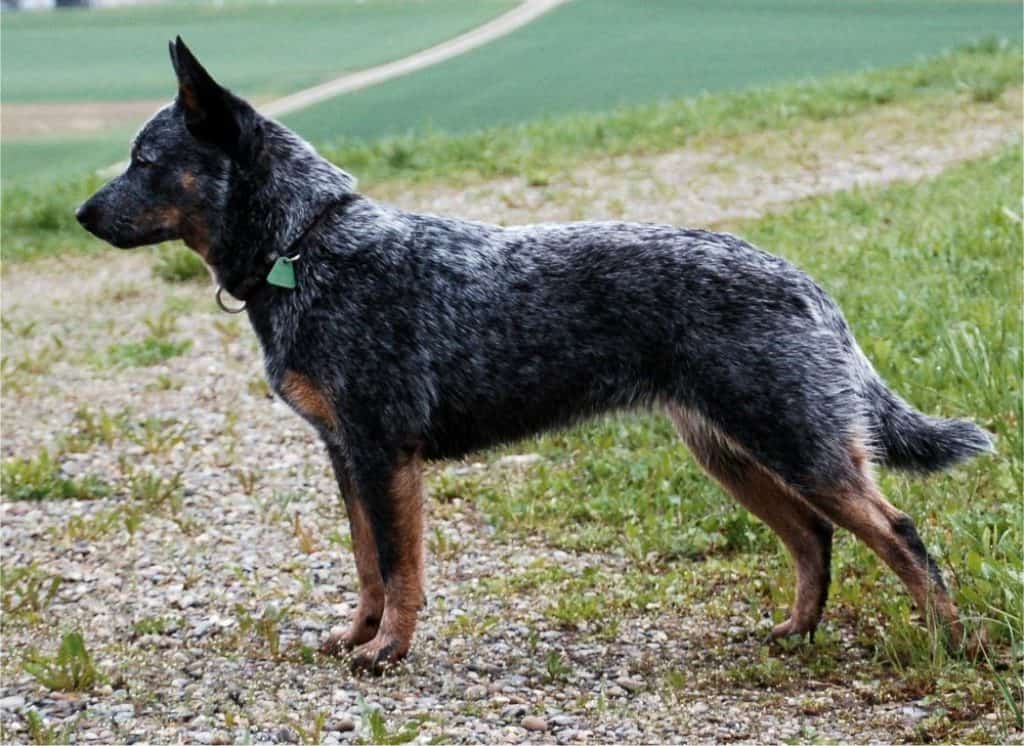
No, you’ll rarely hear your Australian Cattle Dog let out his voice. They usually don’t bark just for the sake of barking.
Historically, Australian Cattle dogs were bred to be cattle herders. This included learning to be as silent as possible while performing their job.
In those times, a big part of their duty involved taking care of half-wild livestock. Most of the cattle way back then were not yet fully domesticated.
In that environment, not only barking wouldn’t do any good, but loud voicing could easily scare off the animals that heelers were supposed to be herding.
Scared livestock would scatter all over the area and a lot of them wouldn’t be found again.
This made barking an undesirable trait and owners back then did their best to teach ACDs to restrain from being vociferous.
Why Do Australian Cattle Dogs (Blue Heelers) Bark?
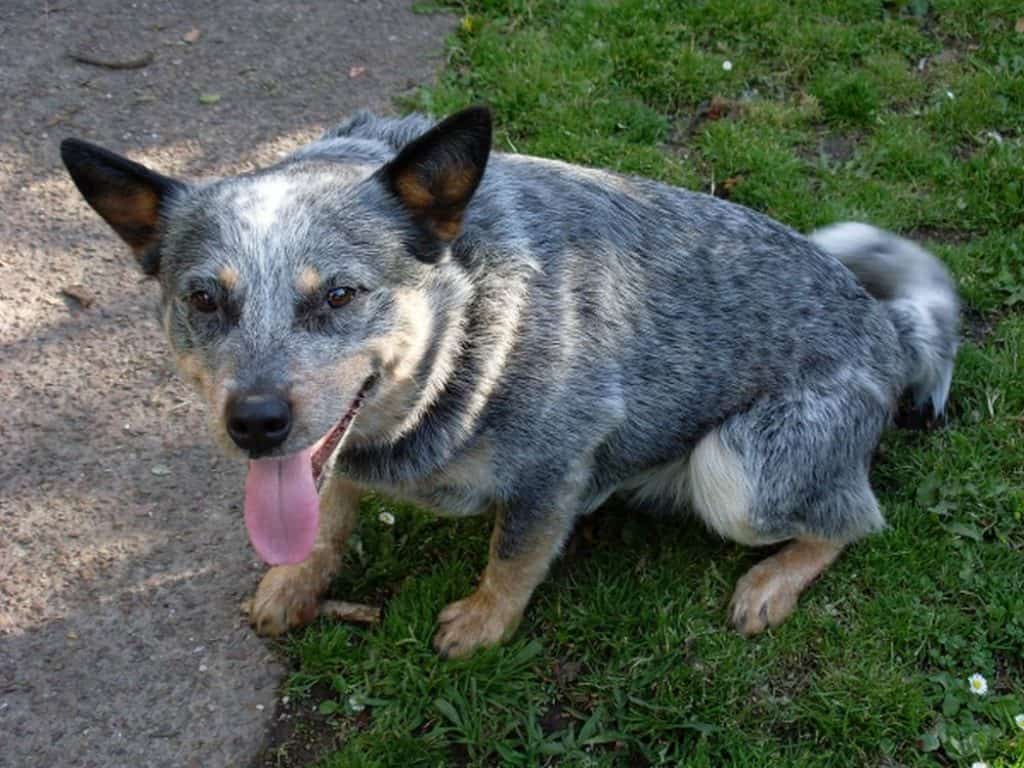
If Australian Cattle dogs bark, it’s mostly to alert their owner of perceived danger.
And they take their watchdog duties very seriously.
Australian Cattle Dog is fiercely loyal and extremely protective of its owner and family. Because of this, they can often overreact and see the danger where realistically none exists.
Plus they’re always active, scanning the territory looking for something that could jeopardize its herd, or, in this case, family.
If not properly trained and socialized, they can start barking on any person or other animal that they do not consider a part of the family.
You should start working on socializing and teaching them that unnecessary barking isn’t allowed while they’re still puppies.
If they learn to accept people outside the family, the barking should decrease by a lot.
Other Reasons Why Australian Cattle Dogs Bark
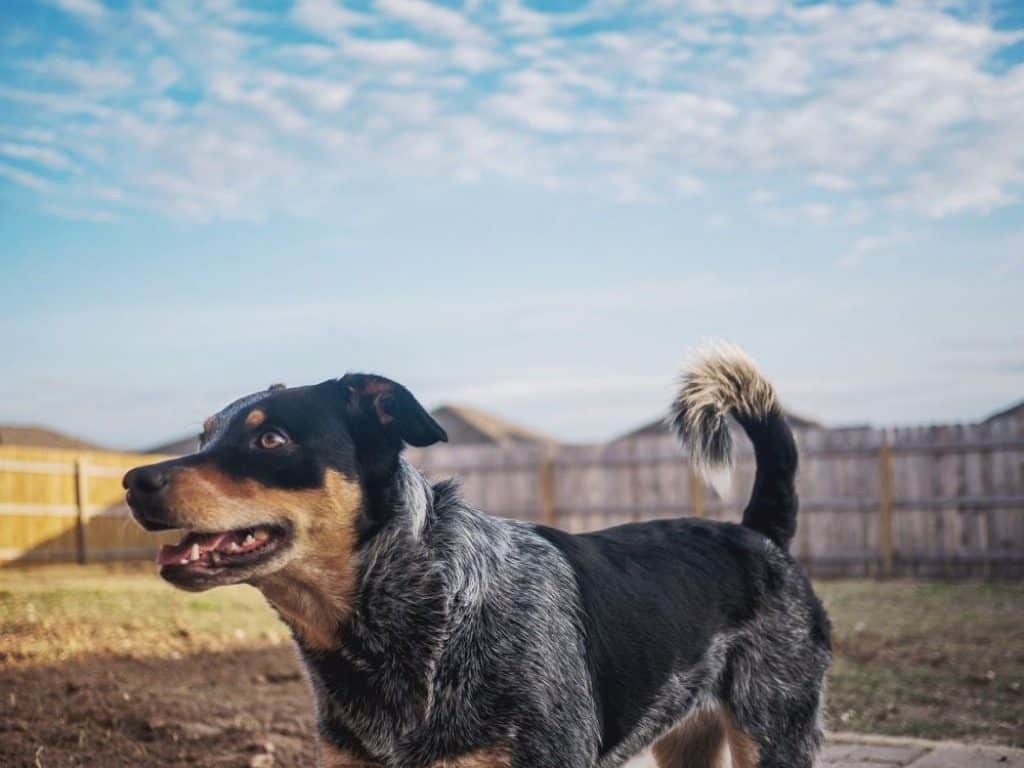
As I already explained, the main cause for Blue Heelers’ barking is to warn the owner of a potential threat.
However, each dog has its own personality.
Dependent on the upbringing and character, your Australian Cattle Dog may be triggered to bark for a variety of different reasons.
Separation Anxiety
Although they have an independent streak to them, ACDs don’t like to be left alone.
They’re very social and love to spend time with their humans. Some dogs can get severely stressed when their owners are not around for an extended period of time.
A lot of them express their anxiety through excessive and loud barking. If you’re getting an Australian Cattle Dog, plan to spend as much time with it as possible.
Also, try to get them used to be separated by teaching them to cope with being alone from a very young age.
Being Bored
Working dogs by origin, Australian Cattle Dogs are very intelligent, active, and love to get busy.
Because of this, they enjoy being given a task, exercising, or playing more than anything.
When they’re idle and have nothing to do, ACDs get bored very quickly. And when they’re bored, they feel frustrated and may express that frustration by barking.
Make sure to keep your dog occupied and exercise it a lot.
If, for whatever reason, you’re not able to spend time with them, make sure they have plenty of toys to keep them busy.
Seeking Attention
Sometimes when you’re at home, but not currently engaged with your pooch, they will start barking in an attempt to grab your attention.
They’re trying to let you know that they are in the room and should be the center of attention.
If you react to this every time, they’ll get easily spoiled and you’ll have a problem on your hands.
The best thing to do is keep ignoring them, not make eye contact, and continue going on about your business.
How to Stop Blue Heelers From Barking?
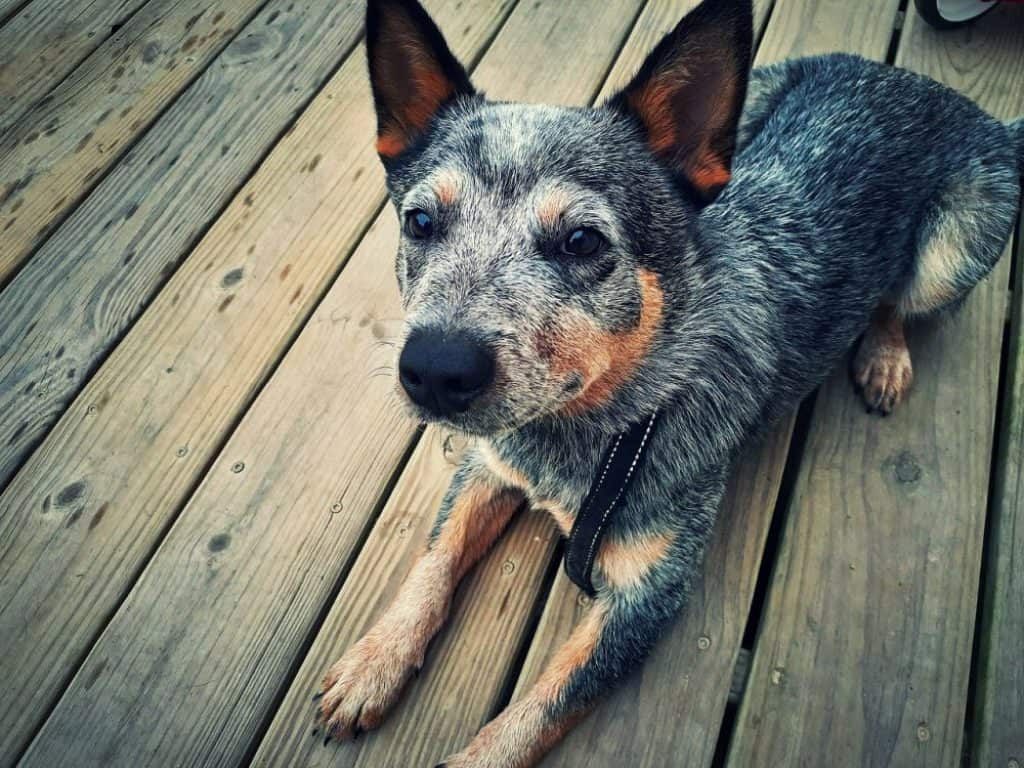
The key thing in stopping the dog from barking is identifying what’s causing it.
It may be one of the above-mentioned reasons or even something completely different that got the dog upset.
When you properly identify the issue, you can take the appropriate course of action. Depending on what got the dog barking, you may remove that reason.
Try eliminating the cause of their distress.
If your Blue Heeler is barking because he’s bored, try to entertain them or engage in exercise activity.
With some other causes, it’s best just to ignore them, so the dog can learn that nothing can be accomplished by barking.
Or you can apply the diverting tactics and redirect the dog’s attention elsewhere.
For example, if the dog barks every time someone is at the door, divert their attention with a toy or get them to perform a trick while the doorbell is ringing.
Conclusion
If you end up with an Australian Cattle Dog that is a typical representative of its breed, you likely won’t have to deal with too much barking.
However, make sure that you teach them proper behaviors while they’re still puppies.
If a dog learns that barking is wrong while at a very young age, it may save you a lot of trouble down the road.
Australian Cattle Dogs react much better to positive reinforcement than to negative training methods including yelling and screaming.
If you yell at your dog for barking, it may easily make the matters worse.
The best thing you can do is create a safe, loving, and active environment for your Blue Heeler where it has to deal with a minimum amount of stress and anxiety.
It will not only make the dog happier and calmer but also provide some peace and quiet for you and your family.

